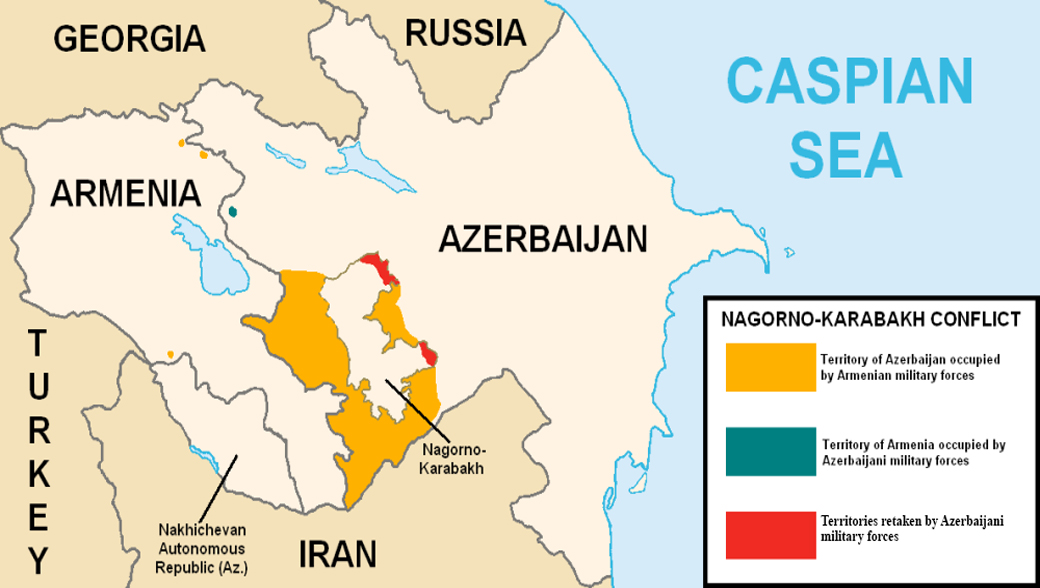 Appeals
Appeals
Nagorno-Karabakh: Continuing Repercussions in Armenia.
This map describes the current situation in the disputed Nagorno-Karabakh region. The region is internationally recognized as part of Azerbaijan but mostly governed by the de facto independent state, Republic of Artsakh. Image is a modified version of MarshallBagramyan’s map. File:Artsakh Occupation Map.png, Author:Elnur Hajiyev.
The November 2020; ceasefire agreement signed among the leaders of Azerbaijan, Armenia and Russia has provided some stability for the Nagorno-Karabakh area. The 2000; Russian military dispatched quickly to the area has brought an end to the fighting. The agreement stated that the Russian forces would stay for five years; but that their posting could be extended depending on the political situation.
When the fighting began on 27 September 2020; The Association of World Citizens; which has been concerned with Nagorno-Karabakh; since the 1992 armed conflict; sent an urgent Appeal to the authorities of Azerbaijan and Armenia urging a ceasefire and the start of negotiations in good faith. A follow up message was sent to the Ambassadors to the United Nations of the leadership of the Minsk Group of the OSCE (Russia, France, U.S.A.).
Azerbaijan-Turkish Aggression.
In Azerbaijan; the fighting which led to the ceasefire is widely considered as a “victory”; and has increased the popularity of the Azerbaijan President Iham Aliev. However in Armenia; the fighting which led to a loss of seven districts around Nagorno-Karabakh; as well as one third of the Karabakh territory is considered as a “defeat”.
The Prime Minister of Armenia, Nikol Pachinian; is under heavy negative pressure with calls that he resign. In Armenia; many refer to the fighting as the “Azerbaijan-Turkish Aggression” – an image recalling the Armenian genocide within the Ottoman Empire in 1915-1916. Turkey had provided weapons and drones to Azerbaijan; which had an influence on the fighting.
No Longer Able to Make Reasonable Decisions.
On 25 February; the leaders of the Armenian armed forces demanded that the Prime Minister, Nikol Pachinian; and his whole cabinet resign. The army had said a few days earlier; that the Prime Minister was “no longer able to make reasonable decisions”; after he had fired some of the top military commanders.
On 25 February; the Prime Minister warned of an attempted military coup; and called on his supporters to gather on Republic Square at the heart of Yerevan. A good number of people have gathered on 26 February; and some plan to camp there as a form of protection on the model of such “Occupy” efforts in Turkey, Ukraine, Egypt and Wall Street. One must hope that cooler heads will arise to bring about a decrease in the tensions; but it is still too early to say.
A situation which merits close attention.
Rene Wadlow, President, Association of World Citizens.

President, Association of World Citizens (AWC).
Estudied International relations in The University of Chicago.
Estudied Special Program in European Civilization en Princeton University